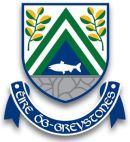Comhgáirdeachas to Billy Cuddihy on having being included in the Christy Ring All-Star team.
The Christy Ring competition is the County B- All Ireland Hurling championship. As players are compelled to play for the counties in which they are domiciled, those participating in this competition include many hurlers who would find their way onto the McCarthy Cup squads if they were free to transfer. So Billy's accolade is of some substance. Sinn-ne in Éire Óg take pride in Billy's achievement and see in it a tribute to the work being done within the club to promote this ancient sport. Ár ngraidhin thú, Billy!
Éire Óg is also honoured in that 4 of its footballers, Darren Hayden, Stephen Kelly, Daniel Woods and Sammy Thompson have been called up to the senior county squad while Seán Lawless and Pearse Kelly have been included in the u-21 selection.
One would not have to travel far in the country or on the internet to find people who pooh-pooh the GAA and its games (prophets in their own country syndrome). Many of these cite as justification for their attitude the failure of these sports to have gained any significant foothold abroad. Such people forget that, unlike our neighbour, we did not have an empire to promote hurling and football among the world's field-sport illiterate of the 19th century.
Over the last few years there have been straws of hope in the wind (is olc an ghaoth nach séideann maitheas éigin – it is a bad wind etc.) in that the diaspora is having some success in adding a truly international dimension to the activities of Cumann Lúth Chleas Gael. Many instances are emerging of teams being formed worldwide which compose mainly non-Irish. There are even some which do not have a single Irish representative e.g. Japanese ladies teams. A propos an iomáint in other countries there are two interesting anecdotes in the current GAA World Podcast on gaa.ie. The 1st is an interview with a NASA physicist, Ryan Norman, from Wisconsin who fell in love with the game and the other concerns the attempt by the hurling club of Buenos Aires to reactivate the sport after its demise during the 2nd world war because of a lack of camáin.
Ryan's recreational interest has always been sport and in his younger days he played a lot of ice hockey and soccer . His first encounter with hurling was at the St Patrick's Day Parade in Milwaukee. He was intrigued by the hurling club's (an almost exclusively American institution) float and he decided to give the game a try. He tells us that from the 1st moment he took the camán in hand he was hooked and he wondered how he had not previously heard of this “amazing game” which had all the qualities Americans seek in a sport viz. it is skilful, fast, high scoring and physical. He has also found hurling a very enjoyable road to athleticism.
His movement to NASA brought him to Virginia and with a friend he decided to set up a club. Being strangers to the area this proved to be a rather difficult task but they stuck at it and the club now boasts 40 members and includes camogie. He is at present helping in the setting up of a club in nearby Richmond.
The 2nd interviewee is Ronnie Quinn, Uachtarán of the Buenos Aires Hurling club which is now known for its rugby and field hockey. In 1900 it was founded as a hurling club by the sons of Irish emigrants as a focal point for the Irish community. At present the club is trying to promote hurling and football which Ronnie describes as “fun games”. He points out that the strength of these games lies in their amateur status because many of the young people in Argentina are not totally happy with the professional nature of the other sports available to them

